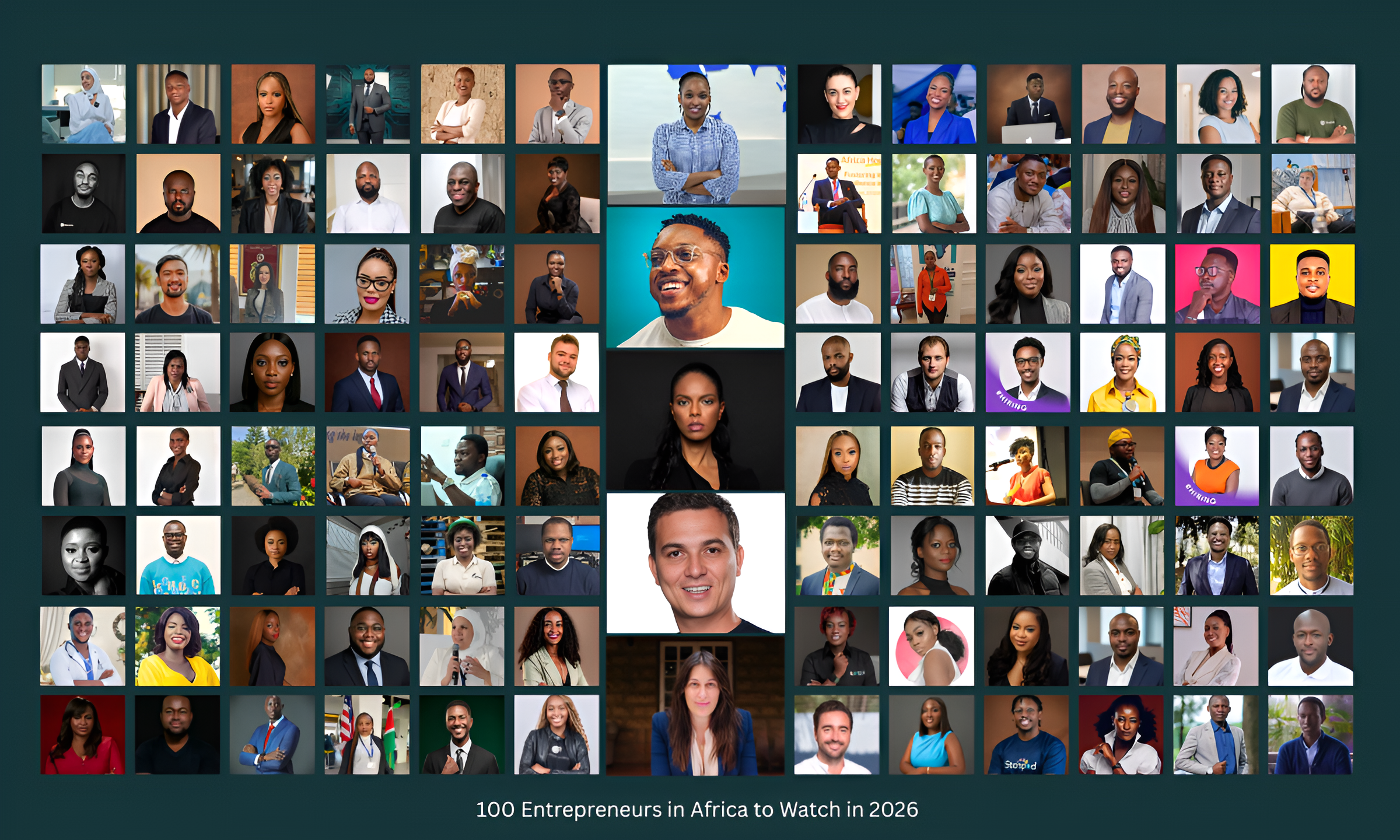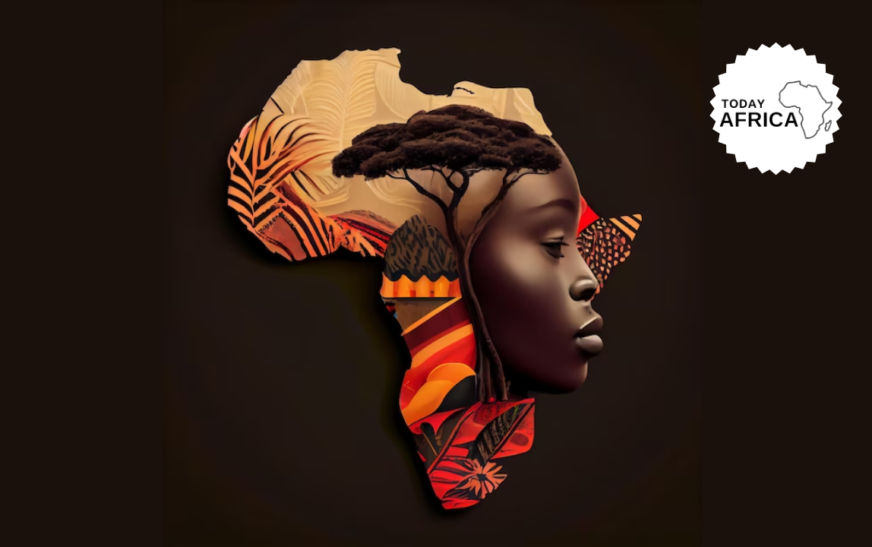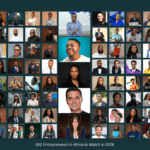Africa’s startup ecosystem is not just growing, it’s exploding.
In recent years, technology entrepreneurs across the continent have launched companies that are solving uniquely African problems with globally relevant innovation.
Whether it’s fintech making financial services accessible, agritech digitizing supply chains, AI boosting health and accessibility, or green mobility powering the future, African tech is no longer on the periphery.
So, in 2026, that momentum won’t slow down one bit. If anything, it’ll speed up.
This article walks you through the top African startups to watch in the technology sector, the ones shaping how money moves, how people access healthcare, how farmers grow food, how kids learn, and even how cities might run in a few years.
Think of this as your deep dive into the companies building Africa’s next decade.
14 African startups to watch in the technology sector in 2026 & beyond
1. Flutterwave
One of the most prominent names in African technology, Flutterwave, continues to stand out in 2025. Founded in 2016, Flutterwave provides payment infrastructure for businesses across dozens of African countries.
In 2021, Flutterwave raised a US$170 million Series C funding round. At the time, this was the largest amount ever secured by an African tech startup and gave it a valuation of over US$1 billion, making Flutterwave a unicorn.
Investors in Flutterwave include Y-Combinator, Visa Ventures, Mastercard, Avenir Growth Capital, and Tiger Global Management.
Flutterwave raised a US$250 million Series D funding round at over US$3 billion valuation in 2022 as well.
Their platform supports everything from e-commerce payments to remittances and has become a backbone for both local and international merchants, making it one of the top African startups to watch in technology sectors, especially in fintech.
In markets where banking infrastructure is weak, Flutterwave’s payment systems help bridge the gap, enabling entrepreneurs, SMEs, and everyday people to transact digitally.
Read Also: Inside Flutterwave’s Journey: From Bright Idea to an African Unicorn
2. Wave (Senegal)
Another fintech giant making major waves (pun intended) is Wave, founded in Senegal. According to TechCrunch, Wave is valued at US$1.7 billion as of 2025.
What sets Wave apart is its mobile-money-first approach: they offer low-cost money transfers and financial services via mobile, targeting underserved and underbanked populations in Francophone Africa.
Their mission resonates deeply in regions where traditional banking is sparse, and where people rely heavily on mobile money.
Recent fundraising is a signal: in 2025, they raised about US$137 million in debt financing, led by big players like Rand Merchant Bank, signaling confidence in their growth trajectory.
Read Also: Inside Wave’s Journey: Francophone Africa’s First Unicorn
3. Wasoko (formerly Sokowatch)
One of the most compelling stories is Wasoko, previously known as Sokowatch.
Based in Kenya, this startup digitizes how mom-and-pop shops (the informal retailers) restock: through their app or even SMS, shop owners can order inventory from suppliers.
Wasoko doesn’t just deliver goods, they offer credit and inventory insights, helping small retailers operate more efficiently. According to Silicon Africa, their 2022 Series B funding round raised US$143 million, underscoring how big this opportunity is.
The informal retail sector is massive in many African economies. By bringing technology to it, Wasoko is enabling millions of small traders to scale, reduce waste, and ultimately make more money.

4. Omniretail
Omniretail is another Nigerian startup making headlines. According to Business Tech Africa, they’ve seen phenomenal growth (a reported 71,818% revenue increase over a period) by offering a B2B e-commerce platform that connects informal retailers to suppliers.
What makes Omniretail especially interesting: they leverage AI to provide real-time analytics on inventory, pricing, and sales data. As of 2025, they’re scaling their analytics tools to help retailers optimize operations and predict demand.
Impact-wise: this isn’t just about buying and selling; it’s about empowering small business owners who historically didn’t have access to sophisticated supply chain tools.
5. Envisionit Deep AI
From South Africa comes Envisionit Deep AI, which is developing AI-powered radiology tools for children. Their platform offers automated imaging analysis that can help detect conditions in pediatric populations.
Their approach is powerful because it addresses shortages: many regions in Africa lack radiologists, especially pediatric specialists. With AI-driven diagnostics, Envisionit can help fill that gap, making early detection more accessible and affordable.
6. InfiniLink (Egypt)
One of the most technically ambitious startups in Africa is InfiniLink, based in Egypt.
According to African Exponent, they’re developing silicon-photonics optical transceiver chiplets, these are designed to improve energy usage and bandwidth in AI data centers.
In 2025, they closed a $10 million seed round, with backing from players like MediaTek, which shows that investors see potential here.
Why this is a big deal: hardware innovation is rare, especially chip-level work, in many emerging markets. InfiniLink could become a critical part of Africa’s deep-tech infrastructure, enabling more local AI capacity.
7. Signvrse
Accessibility and inclusivity are often overlooked in tech, but Signvrse, a Kenyan startup founded in 2023, is doing something deeply meaningful.
They’re building an AI platform called Terp 360, which uses 3D avatars to translate speech and text into sign language in real time.
Why this matters: In a continent with many diverse languages and a sizeable population of deaf or hard-of-hearing individuals, Signvrse’s innovation could drastically improve communication and inclusion.
They’re not just building a tech product; they’re building social impact.
8. Twiga Foods
Twiga Foods (Kenya) is a standout in agritech. They use data, AI, and logistics to connect smallholder farmers with retailers, cutting out inefficiencies and improving food security.
As of 2025, Twiga has expanded into other markets in Africa, and now uses AI-driven demand forecasting and IoT-based logistics to streamline operations.
Impact-wise: by reducing waste and improving farmer incomes, Twiga is not just a business, it’s a critical piece in Africa’s food-system puzzle.
Read Also: Inside Twiga Foods’ Journey: From Rural Farms to Cities
9. Ujuzi Kilimo
Ujuzi Kilimo, another Kenyan innovator, is tackling a huge challenge for African farmers: how to optimize fertilizer and water use. Their SoilPal device measures soil nutrients and moisture, giving farmers data-driven insights.
In recent years, they’ve expanded by adding AI-driven seed recommendations, helping farmers tailor what they plant and how they fertilize.
Why it’s important: small-scale farmers make up a large part of Africa’s agriculture, yet often don’t have access to accurate agronomic advice.
Ujuzi Kilimo democratizes that knowledge, potentially boosting yields and sustainability.

10. Spiro
Spiro, previously known as MAuto, is a pan-African e-mobility startup that builds electric motorbikes and battery-swapping infrastructure. Based in Nairobi, they operate in multiple African countries, including Kenya, Uganda, Nigeria, Rwanda, and Togo.
Their vision is bold: reduce fossil-fuel dependency, make rides more affordable, and scale sustainably.
As of 2025, their expansion is backed by major capital, and they’re building an infrastructure of battery-swapping stations that could support mass adoption.
Why this is a future to watch: transport is one of Africa’s fastest-growing sectors. Electric mobility has the potential to transform how people move, and Spiro is right in the middle of it.
11. AltSchool Africa
AltSchool Africa is a digital learning platform based in Nigeria that’s rethinking both tech education and creative skills development.
They’ve built a model that trains people in software engineering, design, and business skills, and as of their latest public updates, have students spread across Nigeria, Kenya, Ghana, and Rwanda.
Why it’s compelling: with limited traditional education infrastructure and high youth unemployment, platforms like AltSchool Africa are bridging the gap between education and employability in Africa’s digital economy.
Read Also: How to Build a Growth Strategy that Fits Your Stage
12. LXE Hearing
hearX, a South African startup, merged with U.S.-based hearing company Eargo in 2025 to form LXE Hearing.
hearX initially built mobile-based hearing solutions, making hearing tests more accessible via smartphone, and now, with this merger, they’re scaling globally while continuing to serve under-resourced African markets.
The bigger picture: hearing health is often neglected in low- and middle-income regions. By combining technology and affordability, hearX/LXE Hearing could dramatically broaden treatment access.
13. InstaDeep
InstaDeep, founded in Tunisia but now a global player, has been making waves with AI solutions for logistics, finance, and healthcare.
Their systems leverage reinforcement learning and advanced optimization algorithms to tackle extremely complex problems, things like supply chain planning, predictive maintenance, and scheduling for large-scale operations.
What sets InstaDeep apart is their ability to combine academic-level AI research with practical business applications.
In 2025, they continue to expand in Europe and Africa, demonstrating that African AI companies can compete at the cutting edge of the global AI industry.
Read Also: Inside InstaDeep’s Journey: From Two Laptops to a $682M Acquisition
14. DataProphet
South African startup DataProphet applies AI to industrial processes, helping manufacturers optimize production, reduce defects, and improve efficiency. Their deep-learning algorithms can spot patterns in huge datasets that humans or traditional software would miss.
For example, a factory producing automotive components can use DataProphet’s platform to predict machine failures before they happen, saving time and money.
By automating insights that were previously invisible, this startup is helping African manufacturing become smarter, more efficient, and globally competitive.
Why these startups truly matter (beyond hype)
It’s not just about buzzwords. These top African startups to watch in technology sectors represent more than investor excitement, they embody real impact, structural change, and future potential.
- Financial empowerment: Fintechs like Flutterwave and Wave are creating digital economies where cash was once king.
- Economic inclusion: Retail tech such as Wasoko and Omniretail are integrating informal traders into scalable, data-driven supply chains.
- Health equity: Companies like Envisionit Deep AI are building capacity that actually matters for Africans’ healthcare needs.
- Sustainability: Spiro is helping address climate and mobility challenges.
- Deep innovation: InfiniLink’s hardware push could seed an African ecosystem for deep-tech chips.
- Learning and access: Startups like AltSchool Africa and Signvrse are making education and communication more inclusive.
Conclusion
If you were looking for a snapshot of where Africa’s technology future is headed, these are the top African startups to watch in the technology sector in 2026 and beyond.
From deep fintech and biotech to AI, agritech, and green mobility, these companies reflect not just growth, but meaningful transformation, social, economic, and technological.
Africa’s innovation ecosystem is no longer an underdog. It’s producing founders who understand local problems, design scalable tech solutions, and attract serious capital.
Leave a comment and follow us on social media for more tips:
- Facebook: Today Africa
- Instagram: Today Africa
- Twitter: Today Africa
- LinkedIn: Today Africa
- YouTube: Today Africa Studio
















